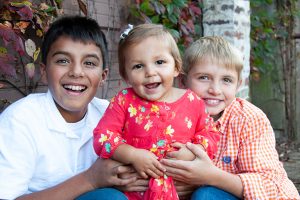
Regardless of where you are in the adoption process, telling your friends and family that you are adopting is a significant and emotional moment.
Here are some key things to keep in mind and reflect on as you prepare for that conversation:
Be Prepared for Mixed Reactions
Expect Varied Responses: While this may feel hard to acknowledge, your family members or friends may have different reactions—some may be excited, others might have concerns or need time to process the news. It is important to not internalize other people’s reactions, at the end of the day adoption should always prioritize what is best for the adoptee.
Educate Them About Adoption
Provide Information: Share details about the adoption process, the reasons behind your decision, and what it means for you and your family. Most importantly, it is your responsibility to address any myths or misconceptions. Be ready to correct any myths or misconceptions they might have about adoption. Many people learn about adoption through what they see in mainstream media, this leads to an incredibly distorted view on adoption. Be intentional about educating them on how modern adoptions work and teach them how to use adoption positive language.
Keep in mind, your child’s story is theirs to tell, not yours. When friends and family ask questions about your child’s background or what led to them being placed for adoption, protect your child’s privacy first. It is not appropriate for everyone to know the details surrounding your child adoption.
Share Your Expectations
Discuss Their Role: Talk about how you envision their involvement in your child’s life and the kind of support you hope for from them. What do you need from them? Before sharing your adoption news, take time to reflect and consider what support will look and feel like from your friends and family. One of the ways they can support you and your family is educating others on adoption and learning how to hold space for the experiences of those in the adoption constellation.
Prepare for Questions
Be Ready for Practical Questions: Your family and friends might ask about the logistics, such as timelines, legal aspects, or the child’s background. Prepare ahead of time what you feel comfortable sharing and remind them that adoptee stories are sacred and it is not your place to speak for your adoptee. This is also a great time to educate them on what questions are and are not appropriate to ask adoptees and explain why intrusive questions can be hurtful and harmful.
Provide Resources
Offer Reading Materials: If your friends and family are open to it, suggest books, articles or websites that can help them better understand adoption and the experiences of adoptees. Many times, friends and family will have a limited view of adoption, simply because they are not exposed to it, this is an opportunity for you to share resources so they can learn about adoption from those with lived experience. If you are adopting transracially, this is incredibly important. The more your friends and family know about adoption, the better they can support you and your adoptee.
Prepare for Potential Cultural Differences
Address Cultural Concerns: If you are adopting transracially, be prepared to discuss how you plan to honor and integrate that culture into your family. Engage your friends and family in conversation about how they can foster an inclusive environment and support your child’s biological culture. Take time to intentionally explain the nuances of transracial adoption, how that differs from other types of adoption, and why it is so important to create safe spaces for adoptees in transracial homes.
Telling your friends and family about your decision to adopt is important conversation, requiring thoughtfulness and preparation. By approaching it with openness and education, you can help them navigate this new chapter. Ultimately, fostering a supportive environment that will create a strong foundation for your child to feel welcomed, seen and loved by your entire community.
By: Ramya Gruneisen






